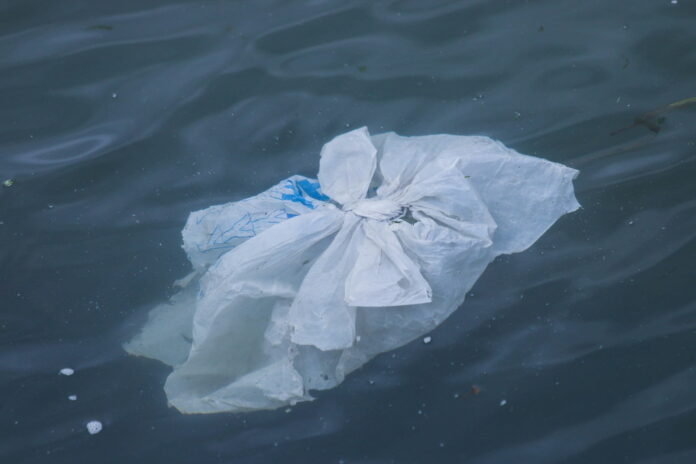In an era where sustainability has become imperative, individuals and communities alike are searching for ways to reduce their environmental footprint. One of the most prevalent concerns is the ubiquitous use of plastic, which has permeated every aspect of modern life. By embracing a plastic-free lifestyle, we can make simple yet impactful shifts that contribute to the health of our planet.
Unveiling the Plastic Predicament
The world’s reliance on plastic has reached an alarming level, with millions of tons of plastic waste generated annually, clogging landfills and littering oceans. Unfortunately, plastic’s durability becomes its own curse, as it takes hundreds of years to decompose, leading to detrimental effects on wildlife and ecosystems. Microplastics, small plastic fragments, have infiltrated the food chain, posing risks to animal and human health alike. The production of plastic also contributes significantly to carbon emissions, exacerbating the issue of climate change. This dire situation underscores the urgency for individuals to reconsider their plastic consumption habits.
Transitioning to a plastic-free lifestyle begins with understanding the sources of plastic pollution. Single-use plastics, such as bags, straws, and packaging, are the most visible culprits. However, plastic is also hidden in less obvious products like cosmetics, clothing, and electronics. By identifying these sources, we can make informed decisions to avoid them. Moreover, the responsibility also falls on manufacturers and policymakers to create and enforce regulations that limit plastic production and encourage the development of sustainable alternatives. Only through a collective effort can the tide of plastic pollution be stemmed.
The plastic predicament is not simply an environmental issue; it is also a social and economic challenge. Communities that lack proper waste management systems are often the hardest hit by plastic pollution, suffering from contaminated water sources and landscapes. Additionally, the economic burden of cleaning up plastic waste is immense, with billions spent annually on mitigation efforts. Addressing the plastic problem requires a multifaceted approach, including education, infrastructure improvements, and economic incentives to reduce plastic use and enhance recycling efforts.
Initiating Your Eco-Friendly Journey
Embarking on a plastic-free lifestyle is a conscious choice that begins with small, manageable steps. Start by conducting a plastic audit of your home to become aware of where you’re using the most plastic. This could involve tracking the plastic items you throw away over a week or making a list of plastic products you frequently purchase. Such awareness is the first step toward making targeted changes. Next, focus on eliminating or replacing single-use plastics, which are among the easiest to avoid. Opt for reusable bags, bottles, and containers, and say no to plastic straws and cutlery when dining out.
As you progress, explore plastic-free alternatives for everyday items. In the kitchen, swap plastic wraps for beeswax wraps, use glass or stainless steel storage containers, and choose wooden or bamboo utensils over their plastic counterparts. In the bathroom, consider bar soaps and shampoos, bamboo toothbrushes, and homemade or package-free personal care products. Shopping in bulk and choosing items with minimal or recyclable packaging can also significantly reduce your plastic footprint. Although some alternatives might seem costlier initially, they often lead to savings in the long run due to their durability and reusability.
Educating yourself and others is a crucial element in initiating your eco-friendly journey. Seek out resources, community groups, and online platforms that offer tips and support for living plastic-free. Furthermore, use your voice and purchasing power to influence change. Support businesses and brands that prioritize sustainability, and encourage local shops and restaurants to offer plastic-free options. Each action you take not only reduces your personal impact but also sends a message to the market, driving demand for more sustainable practices and products.
Sustaining the Change: Long-Term Habits
Maintaining a plastic-free lifestyle requires commitment and continuous effort. It’s important to set realistic goals and celebrate small victories along the way. Understand that occasional setbacks are part of the journey; what matters is the overall trend towards reducing plastic usage. To stay motivated, connect with like-minded individuals and communities who share your vision of a plastic-free future. This network can provide encouragement, share best practices, and keep you accountable.
Ingraining eco-friendly habits into your daily routine ensures their longevity. Make it a habit to carry reusable items such as shopping bags, water bottles, and coffee cups whenever you leave home. Plan your grocery shopping to prioritize package-free goods or those in recyclable packaging, and always be prepared with containers for leftovers when eating out. By making these practices a natural part of your routine, they become second nature, reducing the likelihood of reverting to plastic-reliant behaviors.
Advocacy is also a key to sustaining long-term change. Engage with local community efforts to clean up plastic pollution and promote recycling initiatives. Push for policy changes that support a circular economy, where products are designed for reuse and recycling, rather than disposal. Leverage social media to spread awareness and inspire others to join the movement. Remember, systemic change is as important as individual change, and advocacy plays a vital role in achieving widespread environmental benefits.
Embracing a plastic-free lifestyle is not merely about eschewing a particular material; it’s about fostering a culture of sustainability and mindfulness towards our consumption habits. By unveiling the plastic predicament, taking initiative in our eco-friendly journey, and sustaining these changes through long-term habits, we can collectively mitigate the environmental impact of plastic pollution. The transition to a plastic-free existence is a continuous process, rich with learning and growth. As we adapt and evolve, we pave the way for a cleaner environment and a sustainable future for generations to come.
